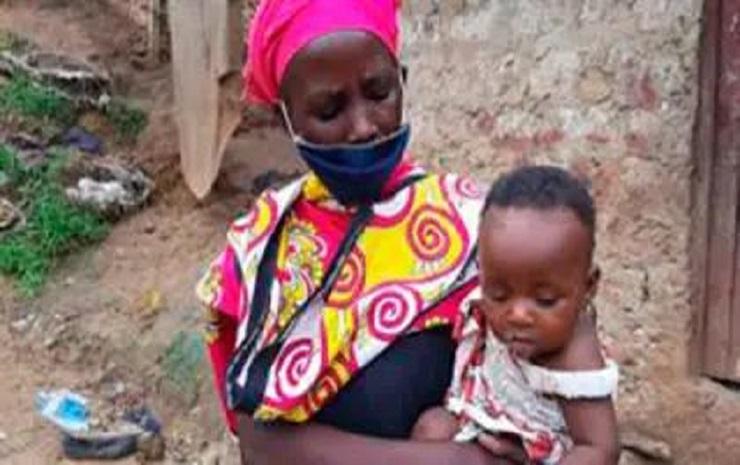The people of Kenya have been touched by the image of a widow living in extreme poverty who came to such a difficult situation that she decided to pretend to boil rocks to make her eight children believe that she was preparing food for them.
Peninah Bahati Kitsao lived in Mombasa and used to work as a washerwoman until restrictions on her movement due to the coronavirus pandemic prevented her from receiving this income. Now it is challenging for her to find another job.
One of her neighbors alerted the media to her case and managed a considerable donation campaign for the 45-year-old woman who is raising her eight children alone.
After being interviewed by the NTV network in Kenya, the widow has received money thanks to a phone line and a bank account that her neighbor opened for her because she cannot read or write.
Kitsao lives in a two-room house with no running water or electricity and has described the Kenyan people’s generosity as “a miracle”.
“I didn’t think they could be so loving after receiving calls from all over the country asking me how they could be of help,” he told the news portal Tuko.
The woman said that despair had caused her to put stones in a pot of water while waiting for the children to fall asleep, believing they would eat when they woke up. But she explained to NTV that her hungry children had not been long fooled by her delayed tactics of cooking the stones.
“They started to tell me that they knew I was lying to them, but that I couldn’t do anything because I had nothing,” the widow said in the television report that made a significant impact on the Kenyan audience. Her neighbor had gone to see if the family was okay after hearing the children cry, NTV added.
As part of measures to protect the most vulnerable from the coronavirus crisis, the government has launched a feeding program. But the benefit has not yet come to Kitsao, who was widowed last year when a criminal gang killed her husband.
At the same time, Kitsao’s story of desperation coincided with the revelation that Kenya’s Ministry of Health has spent huge amounts of money – donated by the World Bank to respond to the pandemic – on tea, snacks and mobile phone cards for its staff.
Kenya registered its first case of the coronavirus on March 12, and since then, according to WHO, it has counted 396 infections and 17 deaths.
Last Sunday, the Kenyan government announced that it was extending the closure of schools for one month because of the coronavirus. The schools were closed in mid-March, at which time programs were launched to teach through radio and television programs. That announcement came one day after Kenya’s president, Uhuru Kenyatta, extended the curfew in the capital, Nairobi, for another 21 days.
